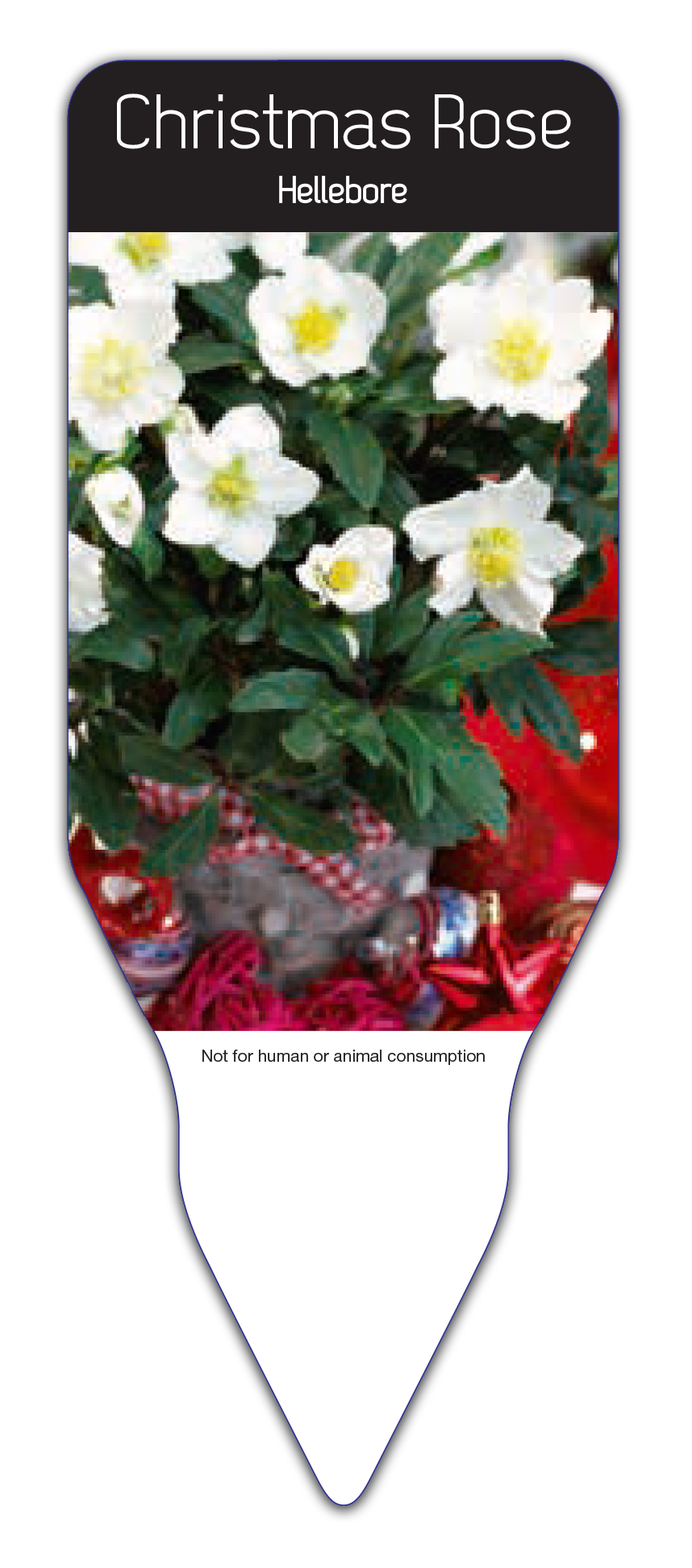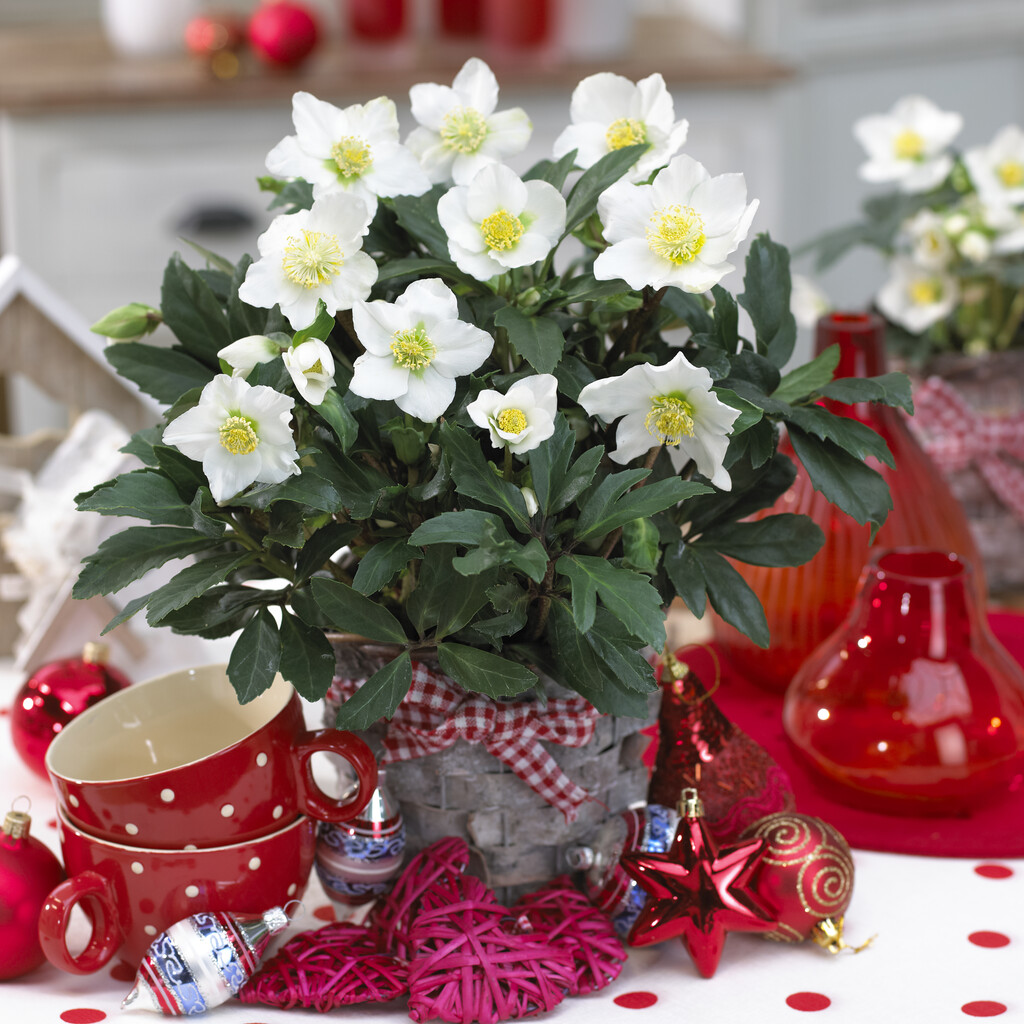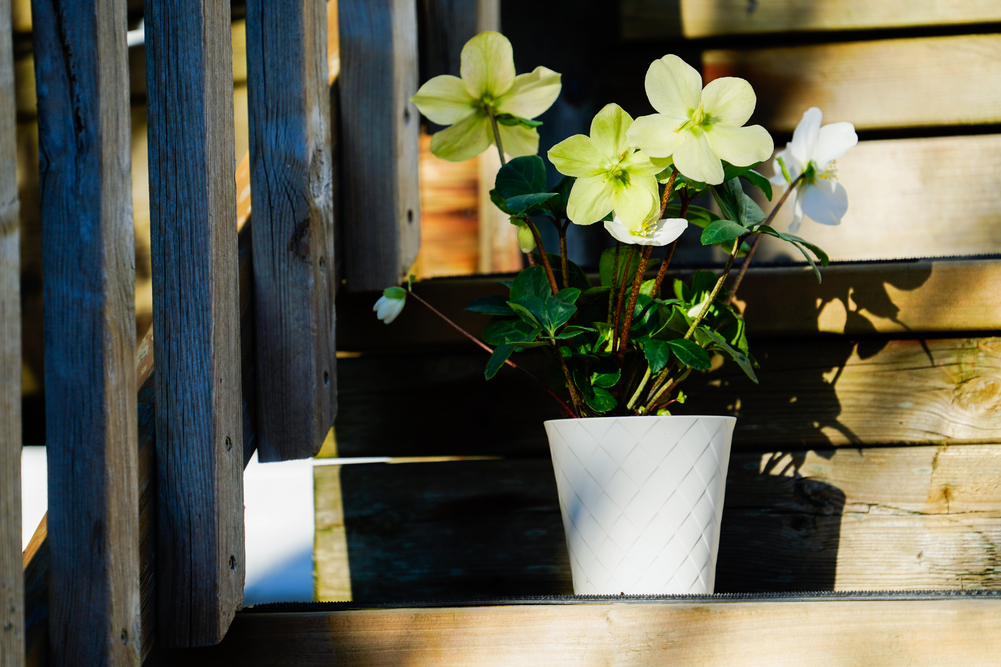
IDEAS FOR ENJOYING YOUR
Christmas rose
Helleborus niger
Christmas Rose (Hellebore) brightens winter spaces with elegant, rose-like blooms and evergreen foliage. Its pure white flowers bring a touch of serenity when most plants are resting, making it a timeless choice for tabletops, entryways, or windowsills during the festive season and beyond.


Key Characteristics of your Christmas Rose
Color
White
Sunlight
Part Shade
Warning
Not for human or animal
consumption
Size
Mature Height: 8″-1′ (20-30cm)
Mature Width: 1-2′ (30-60cm)
Growth Habit
Upright
Caring for your Christmas Rose
Hellebore is easy to grow with cool temperatures, steady moisture, and a little seasonal trimming to keep it healthy and blooming through winter.
- Light
- Place where the plant receives bright, indirect light or gentle morning sun. A north- or east-facing window works well indoors. Avoid hot afternoon sun, which can scorch the leaves. Outdoors, dappled shade under deciduous trees is ideal.
- Watering
- Keep the soil lightly moist at all times. Water thoroughly when the top of the soil feels dry, then let excess drain freely. Never allow the plant to sit in soggy soil — consistent moisture is good, but poor drainage leads to root rot.
- Repotting
- Use a rich, well-draining potting mix, such as a peat- or compost-based soil with added perlite or fine bark. Always choose a container with drainage holes. Repot every 2–3 years in early spring, refreshing the soil to maintain fertility.
- Temperature
- Helleborus prefers cool air. Keep it in a space where winter temperatures range between 45–60°F (7–15°C) and summers do not get excessively hot. It tolerates light frosts but dislikes hot, dry indoor air, so avoid placing it near heating vents.
- Feeding
- Feed monthly in spring and summer with a slow-release or balanced liquid fertilizer. Hold off in fall and winter while the plant is resting and flowering.
- Pruning
- Cut away any old, tattered, or diseased leaves in late winter before the flowers emerge. This keeps the plant healthy and highlights the blooms. After flowering, remove spent flower stalks to conserve energy.
